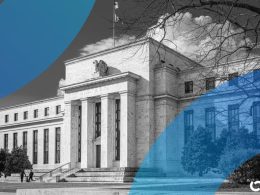In 2025, the world of finance is witnessing a profound transformation, yet a significant portion of traditional fund managers remains hesitant to embrace cryptocurrencies. Despite the growing interest in digital assets, as evidenced by record inflows into U.S. spot exchange-traded funds (ETFs) and corporations like Strategy and BitMine investing in crypto, a recent survey from Bank of America indicates that three-quarters of global fund managers are still unwilling to engage with digital currencies.
Max Gokhman, deputy chief investment officer at Franklin Templeton Investment Solutions, attributes this reluctance not to regulatory uncertainties or operational complexities—issues that have largely been resolved—but to deeper fears and misconceptions surrounding cryptocurrencies. In an interview with CryptoSlate, Gokhman noted that traditional finance is often slow to adapt, stating,
“The biggest reason is it takes a while for an established industry to realize that they’re falling behind. There’s this fear of the unknown that exists.”
Many fund managers pride themselves on their fiduciary responsibility, yet this protective instinct can paradoxically inhibit them from seizing opportunities their clients increasingly demand. Gokhman pointed out that clients, both retail and institutional, are expressing greater interest in digital assets, but many investment managers are not equipped to provide appropriate solutions. He emphasized,
“Part of being a good steward is being aware of what your clients want. Clients from retail to institutional level are more interested in digital assets, but they’re finding that their investment managers are not actually there with solutions.”
The skepticism surrounding cryptocurrencies often stems from persistent misconceptions. Many traditional finance professionals view digital assets as hyper-speculative and lacking in value, failing to recognize the vast spectrum within the crypto market. Gokhman argues that just as equity markets include both blue-chip stocks and speculative investments, the cryptocurrency landscape ranges from established protocols that generate revenue to purely speculative tokens. He challenges the narrow perspective of skeptics, asking,
“Because you invest in equities, does that mean you’re only buying pink sheet penny stocks?”

Despite the lingering skepticism, the market for digital assets is evolving. Gokhman cited that 89% of Bitcoin transactions on exchanges exceed $100,000, indicating a shift towards institutional investment. As traditional yield sources diminish, cryptocurrencies are being considered as viable alternatives for income generation. Gokhman stated,
“Everyone needs income. Staking is one clear way to do it.”
Franklin Templeton is actively addressing these challenges through a three-tier campaign aimed at central bankers, institutional intermediaries, and retail investors. A critical focus is on wirehouses and platform owners who control access to millions yet often remain unaware of client demand for crypto exposure. Gokhman pointed out the importance of engaging these intermediaries by questioning whether they have inquired about their clients’ interest in digital assets.
As 2025 progresses, the landscape of cryptocurrencies may undergo further changes, particularly with recent SEC guidance on liquid staking, which could represent a turning point for regulated financial products. Gokhman predicts that if crypto ETFs with staking capabilities are approved, the resistance among traditional fund managers will likely diminish. He asserts,
“When we can give the yield, I think it’s going to drive even more adoption.”
Ultimately, the divide between the 75% of fund managers hesitant to adopt digital assets and the growing number recognizing the need for technological adaptation will likely close under economic pressure. The critical question remains: which managers will lead this transformation, and who will struggle to catch up?
For more insights into the evolving landscape of cryptocurrencies and their impact on traditional finance, consider joining the CryptoSlate community for real-time news and expert perspectives.









